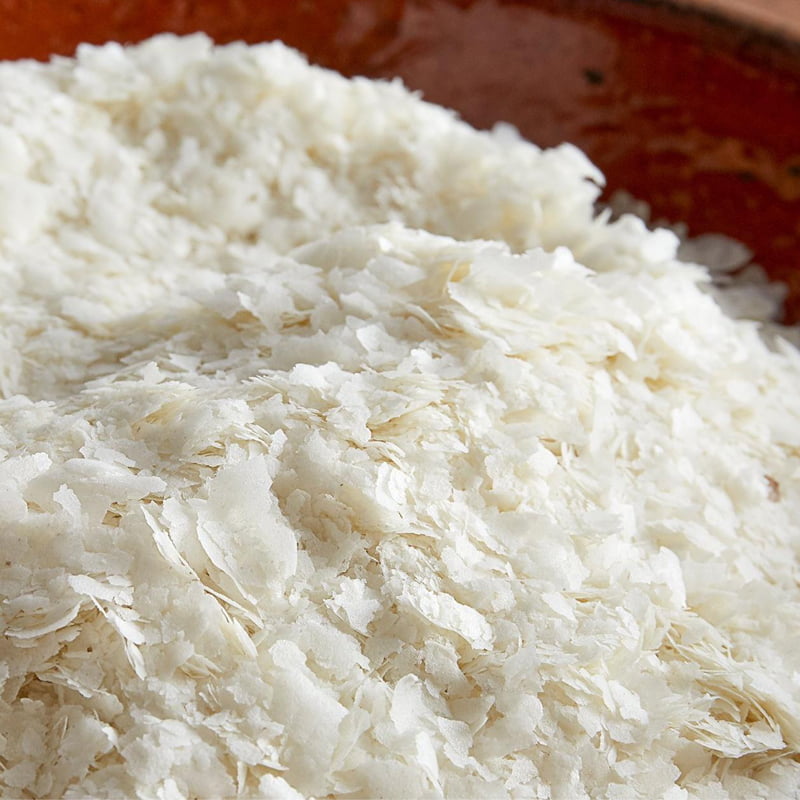Serpihan kentang, as a crucial potato deep-processing product, are globally recognized as a wholesome nutritional food. Primarily used as raw material in the production of potato convenience foods, potato flakes serve as a foundation for the deep processing of various other foods. It finds extensive applications in the manufacturing processes of convenience foods, frozen foods, and processed foods.
Comparison of nutrients in the world’s five largest crops
| Item | Kentang | Wheat | Rice | Corn | Sorghum |
|---|---|---|---|---|---|
| Edible Portion | 94 | 100 | 100 | 10 | 100 |
| Tenaga (kcal) | 76 | 352 | 346 | 336 | 351 |
| Moisture | 79.8 | 10 | 13.3 | 11.7 | 10.3 |
| Protein | 2 | 12 | 7.4 | 8.8 | 10.4 |
| gemuk | 0.2 | 1.3 | 0.8 | 3.8 | 3.1 |
| Dietary Fiber | 0.7 | 10.2 | 7 | 8 | 4.3 |
| Karbohidrat | 16.5 | 76.1 | 77.2 | 66.7 | 70.4 |
| Vitamin M μg | 5 | 0 | 0 | 63 | 0 |
| Vitamin B₁ mg | 0.08 | 48 | 0.11 | 0.2 | 0.29 |
| Vitamin B. mg | 0.04 | 0.14 | 0.05 | 0.07 | 0.1 |
| Niacin mg | 1.1 | 4 | 1.9 | 2.3 | 1.6 |
| Vitamin F mg | 0.34 | 1.91 | 0.46 | 8.23 | 0.88 |
| Zinc mg | 342 | 289 | 103 | 262 | 281 |
| Sodium mg | 2.7 | 6.8 | 3.8 | 2.5 | 6.3 |
| Calcium mg | 8 | 34 | 13 | 10 | |
| Iron mg | 0.8 | 5.9 | 2.3 | 2.2 | 6.3 |
| Vitamin C mg | 27 | 0 | 0 | 16 | 0 |
| Cholesterol mg | 0 | 0 | 0 | 0 | 0 |
How Much Nutrition is Lost From the Potato Flakes Processing?
The processing of potato flakes does not disrupt plant cells, ensuring comprehensive nutrition. Despite undergoing drying and dehydration, rehydration in the appropriate proportions allows the reconstitution of fresh potato mash. As a result, the products retain the natural flavor and inherent nutritional value of potatoes.
Here is the nutrition comparison of potato and potato flakes:
| Item | Raw Potato* | Serpihan Kentang |
|---|---|---|
| Edible Portion/% | 94 | 100 |
| Energy/kcal | 76 | 337 |
| Moisture/g | 79.8 | 12 |
| Protein/g | 2 | 7.2 |
| Fat/g | 0.2 | 0.5 |
| Dietary Fiber/g | 0.7 | 1.4 |
| Carbohydrates/g | 16.5 | 76 |
| Vitamin Mμg | 5 | 20 |
| Vitamin B/mg | 0.08 | 0.08 |
| Vitamin B₂/mg | 0.0 | 0.06 |
| Niacin/mg | 1.1 | 5.1 |
| Vitamin E/mg | 0.34 | 0.28 |
| Calcium/mg | 342 | 1075 |
| Sodium/mg | 2.7 | 4.7 |
| Calcium/mg | 8 | 171 |
| Iron/mg | 0.8 | 10.7 |
| Vitamin C/mg | 27 | 0 |
| Cholesterol/mg | 0 | 0 |
What are the Applications of Potato Flakes?
Potato flakes are an important product of potato deep processing, primarily used as raw material in the production of potato food products, and also serve as a crucial ingredient in the deep processing of other foods.
- Potato flakes are utilized in various food preparations such as reconstituting mashed potatoes and making potato crisps.
- It serves as a versatile ingredient for enhancing both flavors and nutritional profiles in food products.
- Potato flakes are also commonly used as a food additive in items like bread, cakes, and mooncakes.
- Potato flakes are sometimes used in pet food.
What is the Price of Potato Flakes?
Potato flour is relatively expensive as a food ingredient.
The main reasons are as follows:
- In terms of production, it takes about 6 kilograms of fresh potatoes to produce 1 kilogram of potato flakes.
- Regarding raw materials, the production of potato flakes requires high-quality raw materials, which are generally more expensive than regular potatoes.
- In terms of production costs, producing potato flakes requires a significant amount of energy, leading to high energy costs.
- In terms of scale, the production of potato flakes requires large-scale temperature-controlled warehouses, so manufacturers need to invest a considerable amount of funds in construction. Generally, potato flake factories are of considerable size.
Oleh itu, the total cost of 1 kg of potato flakes is around 2 USD to 3 USD. In retail, you may pay much more to buy 1 kg of potato flakes from the store, but bulk potato flakes are much cheaper for food factories to use.
